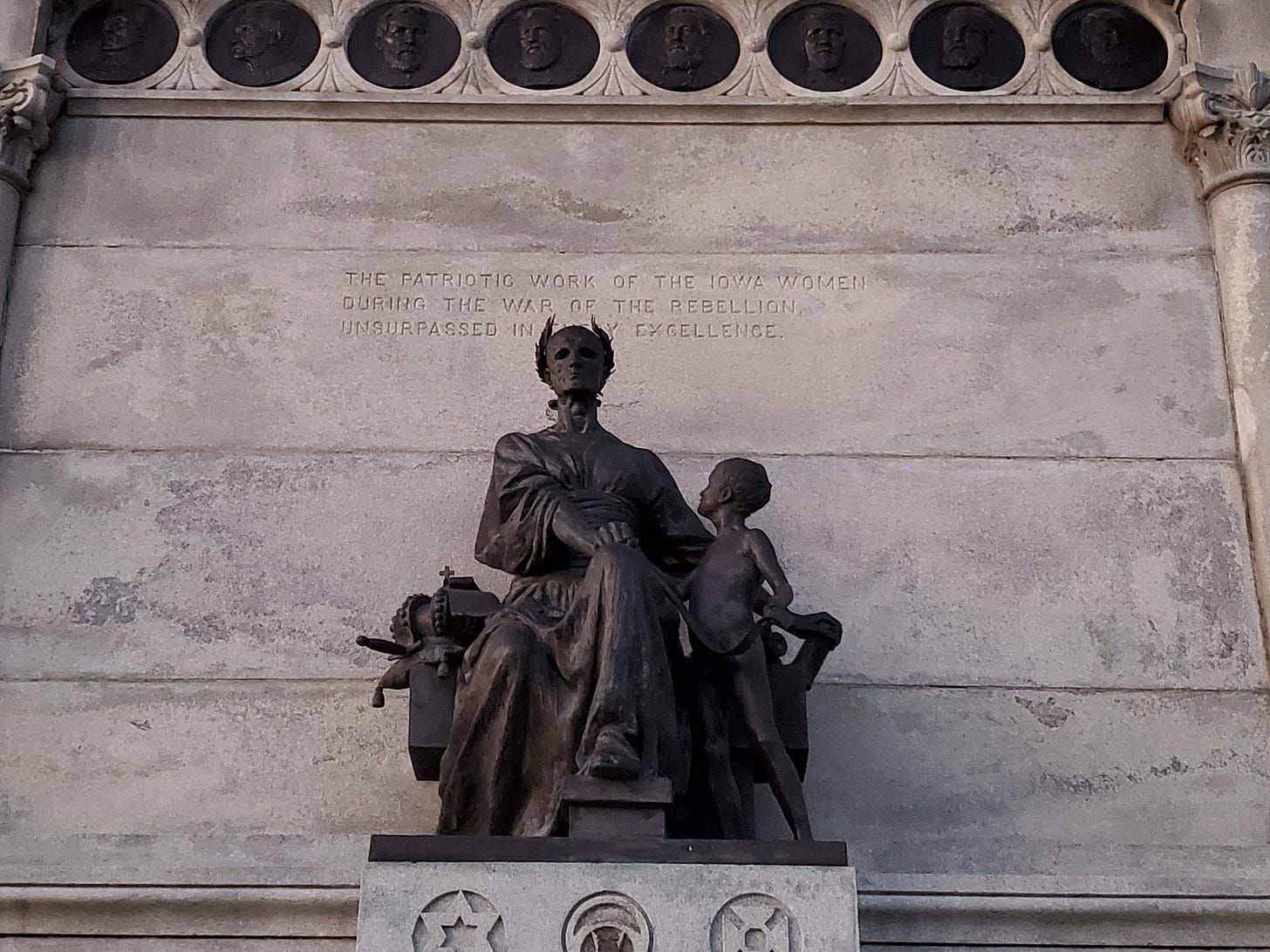Union forever
On treason weasels in Congress, peaceful trade, and defending Union on its merits
Some people argue with such unapologetic bad faith and on behalf of such outrageously bad ideas that it seems more satisfying to dismiss them out-of-hand than to rise to the argument. But, for as viscerally satisfying as it may be to point and laugh at those we think are making fools of themselves, every good thing worth keeping deserves to be defended on its merits.
■ In the case of the rancorous and disingenuous notion of dividing the United States, it seems almost ridiculous to try to meet the question on the merits. But we cannot avoid the fact that a sitting member of Congress is openly advocating a split, and even if her attitude is treasonous, the idea of union among the American States is important enough that it deserves to be won on its merits.
■ "Union Forever" isn't merely an echo from Lincoln's time. It is no small triumph that a nation of more than 330 million people has been perpetuated and grown to act as a gigantic free trade zone, with freedom of movement across an entire continental nation.
■ That's truly an extraordinary achievement in human history. And its growth has been overwhelmingly organic -- say what you will about the motivations behind the Louisiana Purchase, the purchase of Alaska, or the annexation of Texas, but most of what is recognized as the United States today wasn't brought in by force.
■ And what has been joined into union has become extraordinarily peaceful and productive. The time, the effort, and the negotiations required to achieve even bilateral free trade agreements between countries or even a minimal amount of freedom of movement is really quite extraordinary. It took the European Union enormous effort to develop the Schengen Area, despite peace and common interest.
■ For the United States to have achieved freedom of movement and freedom of trade among one out of every 25 people alive on the planet, merely by the organic maintenance of the Constitutional rule of law, is really extraordinary.
■ To undervalue those freedoms is to make a colossal misjudgment about the value of human organization. Freedom of exchange and freedom of movement are landmark achievements in the course of human history. They make the people who engage in them better off.
■ To be able and pick up and move because of job availability, or to move away from chronic natural disasters, or to to take advantage of attractive laws or incentives, or merely to "start over", is the kind of thing that people dream about in many other parts of the world even today. And in the course of human history, to take that kind of freedom for granted is an act of ignorance and ingratitude.
■ People have chosen the United States to escape famine, to escape oppression, and for countless other reasons. But once here, they have been free to move about, to specialize in any of our considerable economic sectors, and to live generally in peace and mutual tolerance. Our many advantages as a country would fall apart, even if we split into parts that could work amicably with one another. Free-trade agreements are nice, but it's better for California and North Carolina to be able to trade without needing any treaties at all.
■ Part of a democratic system of government is that none of us gets everything we want, especially not at the national level. But anyone who fails to see the advantage in accepting a few political policy inconveniences in exchange for the much broader power of those freedoms is simply being unserious about the value of union. Union has been achieved peacefully so few times and in so few cases throughout history that it should be self-evident that the only sensible thing to do is to maintain and cultivate it. To be so fortunate and to take that good fortune for granted is a disposition that doesn't make any sense. Union forever, indeed.



